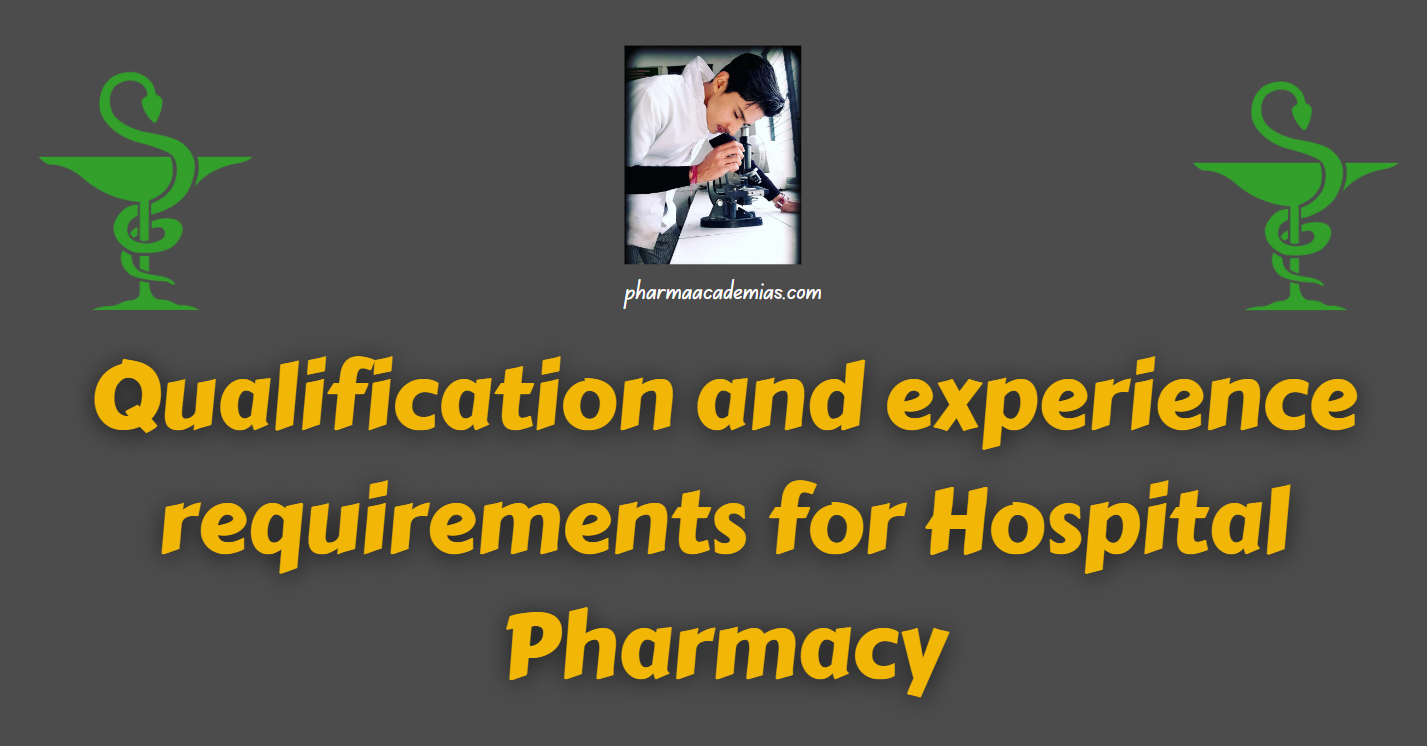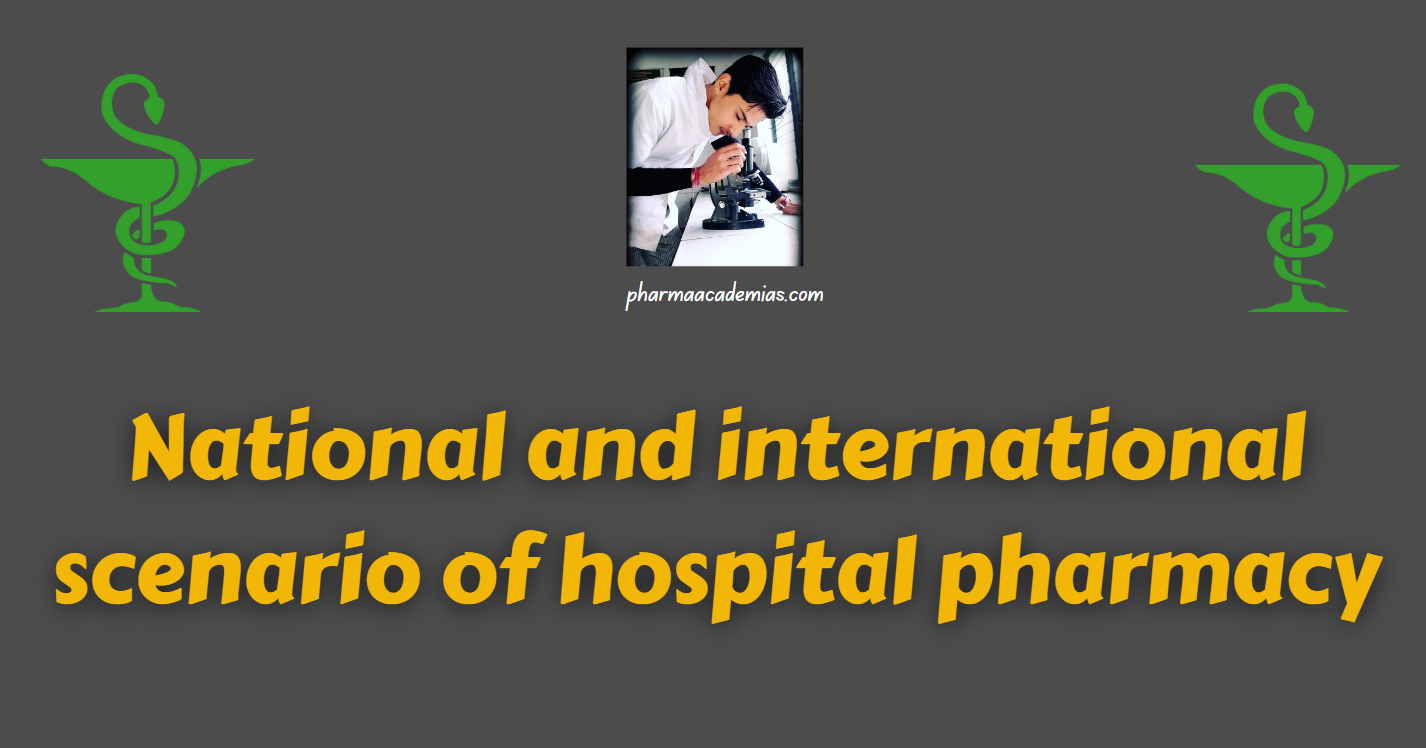1. Introduction to NAQS (National Accreditation Board for Hospitals & Healthcare Providers) Guidelines NAQS, also known as NABH (National Accreditation Board for Hospitals & Healthcare Providers), is an autonomous body established by the Quality Council of India to establish and operate accreditation programs for healthcare organizations. The primary objective is …
Hospital pharmacy standards (FIP Basel Statements, AHSP)
Hospital pharmacy standards ensure safe, effective, and high-quality pharmaceutical care within healthcare institutions. The FIP Basel Statements and the American Society of Health-System Pharmacists (ASHP) Standards are two notable standards. Let’s delve into each: FIP Basel Statements on the Future of Hospital Pharmacy The FIP Basel Statements were developed by …
Good Pharmacy Practice (GPP) in Hospital
Good Pharmacy Practice (GPP) in hospital settings is a set of principles and standards designed to ensure the delivery of high-quality pharmaceutical care and services. GPP emphasizes the role of pharmacists and other pharmacy professionals in optimizing patient outcomes, promoting patient safety, and maintaining the integrity of the pharmaceutical profession. …
Workload Requirements in Hospital Pharmacy
1. Dispensing and Medication Distribution: Pharmacists and pharmacy technicians are responsible for accurately dispensing medications based on prescriptions, ensuring proper labeling, and providing appropriate patient instructions. 2. Clinical Services: Clinical pharmacists participate in patient care rounds, manage medication, and collaborate with healthcare teams to optimize drug therapy. 3. Medication Monitoring: …
Qualification and experience requirements for Hospital Pharmacy
The qualification and experience requirements for individuals working in hospital pharmacy can vary based on the specific roles and responsibilities. Below are general guidelines for common positions within hospital pharmacy: 1. Pharmacist Qualification: A Doctor of Pharmacy (Pharm.D.) or Bachelor of Pharmacy (B.Pharm) degree. Completion of licensure or …
Organizational structure of a hospital pharmacy
The organizational structure of a hospital pharmacy can vary depending on the size of the hospital, the scope of services offered, and local regulations. However, a typical organizational structure may include the following key components: 1. Director of Pharmacy The Director of Pharmacy oversees all pharmacy operations, ensures compliance with …
National and international scenario of hospital pharmacy
The national and international scenarios in the context of hospital pharmacy involve considerations of healthcare systems, regulatory frameworks, emerging trends, and challenges. Let’s explore these aspects: National Scenario 1. Healthcare System: The structure and organization of the healthcare system impact the role and scope of hospital pharmacy. In some countries, …
Hospital Pharmacy: Definition, Scope
Hospital pharmacy refers to a specialized field of pharmacy practice concerned with managing and dispensing medications within a hospital setting. It encompasses a wide range of pharmaceutical services to ensure safe, effective, and optimal drug therapy for patients admitted to the hospital. Hospital pharmacists work collaboratively with healthcare teams to …
Congestive Heart Failure (CHF)
Congestive Heart Failure (CHF) is a chronic medical condition characterized by the heart’s inability to pump blood effectively, leading to inadequate perfusion of tissues and congestion of fluids in the lungs and other parts of the body. It is a progressive condition that affects the heart’s ability to meet the …
Hyperlipidemia: Definition, Etiopathogenesis, Clinical Manifestations, Non-pharmacological/Pharmacological Management
Hyperlipidemia refers to elevated levels of lipids (fats) in the bloodstream, including cholesterol and triglycerides. These abnormal lipid levels can contribute to the development of atherosclerosis, a condition characterized by the deposition of fatty plaques on arterial walls, leading to cardiovascular diseases. Etiopathogenesis 1. Genetic Factors: Familial hyperlipidemias, such as …










